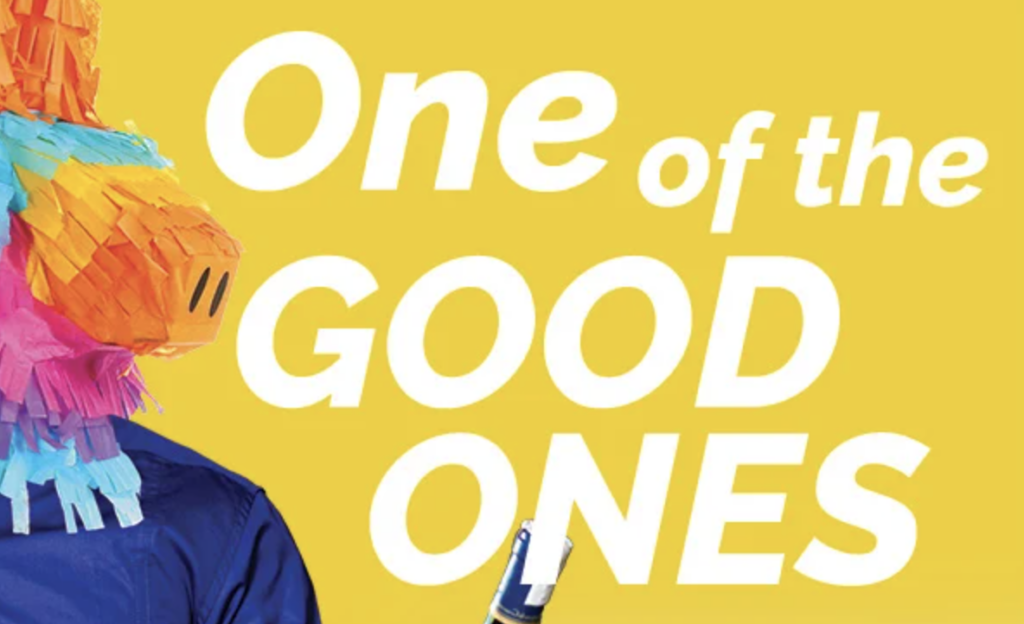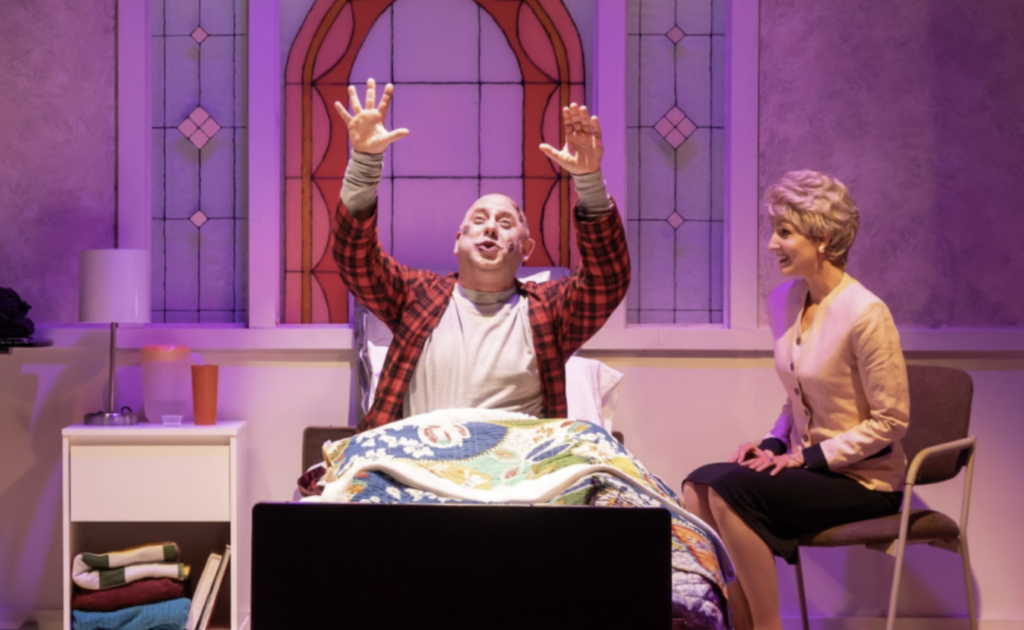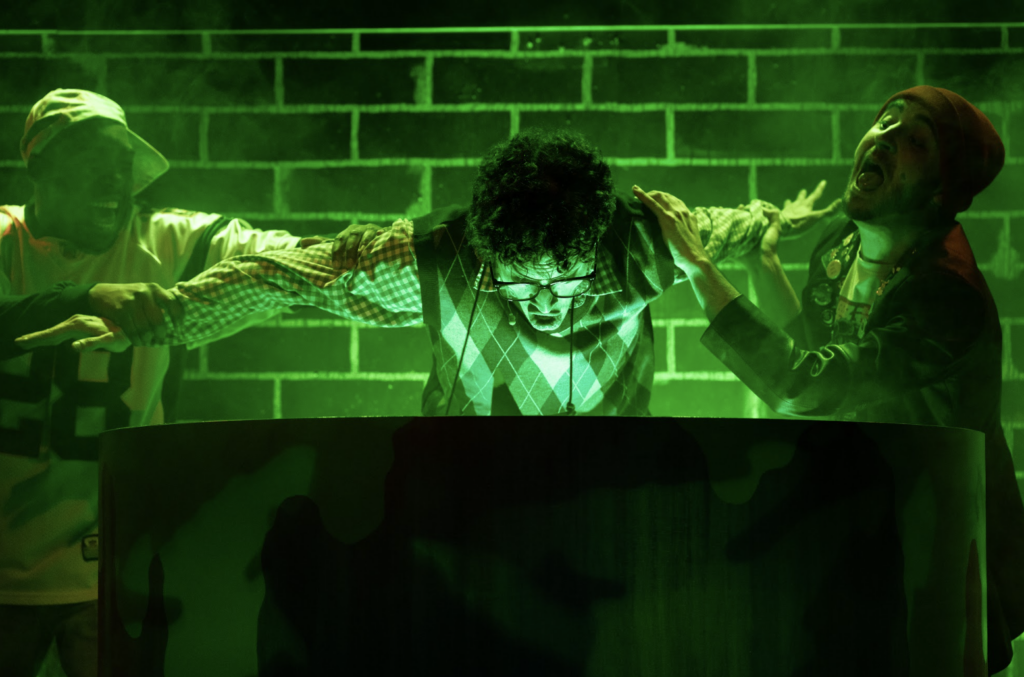Book of Mormon on tour rings true with sharp satire and perfect pitch
Book of Mormon, a nine-time Tony Award-winning musical premiering on Broadway in 2011, rang its doorbell at the Music Hall Sept 16-21. It is a well-loved musical phenomenon that pushes boundaries and is laugh-out-loud funny.
With a show this iconic, audiences tend to arrive with expectations already in place. Many know the cast album by heart, and the musical’s outrageous satire has been dissected countless times since its debut. That level of familiarity can leave touring productions in a tricky spot. If they lean too closely on the Broadway blueprint, it risks becoming a polished impression. On the other hand, if it veers too far afield, then it risks losing what made the original so beloved.
This production manages to strike the perfect balance. While true to the razor-sharp writing of Trey Parker, Matt Stone, and Robert Lopez, the touring cast brings their own flair, leaning into the satire with fresh timing that makes even the most well-worn punchlines feel brand-new.
At the core of the story are two mismatched missionaries: Elder Price, played by Sam McLellan, and Elder Cunningham, played by Diego Enrico. Sam McLellan’s Price is everything the role demands: upright, earnest, and so unshakably confident in his destiny for greatness that his downfall is as funny as it is inevitable. He sings with beautiful pitch and control, his clear tenor voice adding power to numbers like “I Believe.” McLellan never pushes the comedy too hard, instead letting Price’s inflated sense of self do the work.
By contrast, Enrico’s Cunningham is a whirlwind of nervous chatter and physical comedy. His timing is immaculate—he knows exactly when to push a punchline and when to let a pause land. Cunningham’s compulsive improvisation of scripture is one of the show’s best gags, and Enrico keeps it unpredictable while never breaking character. The running joke of him changing Nabulungi’s name every time he addressed her drew some of the biggest laughs of the night, a testament to both the script and Enrico’s playful delivery. He gave an incredible performance for his professional debut— and I’m positive we will see more of him in the future.
Charity Arianna shines as Nabulungi, the hopeful young villager who dreams of a better life. Arianna’s vocals are powerful yet tender, particularly in “Sal Tlay Ka Siti,” where she balances wide-eyed innocence with emotional depth. Her comedic instincts are equally sharp, playing off Cunningham’s bumbling energy with patience, charm, and just the right touch of exasperation. She grounds the humor in heart, which makes the character’s arc all the more affecting.
The ensemble deserves equal credit for the production’s success. Their dancing is crisp, their singing well-blended, and their comedic instincts sharp. Every group number—from the satirical pep and tap dance of “Turn It Off” with Craig Franke as Elder McKinley as a standout to the irreverent, wild pageantry of “Spooky Mormon Hell Dream”—is executed with energy and precision. This is a cast that knows exactly how to ride the rhythm of a joke and how to elevate the humor with movement, expression, and sheer commitment.
If there is one critique, it is clarity. At times, enunciation slipped, particularly in fast-paced dialogue and patter songs. Because so much of the comedy rests on clever wordplay, those moments of muddiness occasionally dulled the impact of otherwise sharp jokes. It’s a minor note, but in a musical that thrives on the exactness of language, articulation matters.
Ultimately, this touring production of Book of Mormon proves why the show remains a force more than a decade after its premiere. The satirical script is as biting as ever, and in the hands of McLellan, Enrico, Arianna, and the strong supporting cast, it feels both familiar and freshly funny. For those who have never seen it, the production is a must; and for those who have, it offers new laughs in a well-loved favorite.





